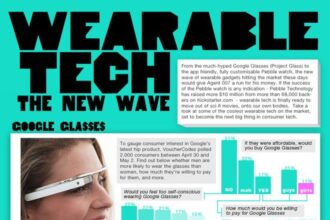Every day my inbox gets filled with announcements for and invitations to attend all kinds of conferences. While many of them are of the traditional medical education sort, more and more I hear about meetings where new technologies and gadgetry in healthcare are the focus. And while the former feature healthcare professionals speaking medicalese from the stage to rapt audiences of other healthcare professionals in dimly lit halls, the latter capture their audience’ imaginations with the promise of the future, in all its glitter and glory.
Every day my inbox gets filled with announcements for and invitations to attend all kinds of conferences. While many of them are of the traditional medical education sort, more and more I hear about meetings where new technologies and gadgetry in healthcare are the focus. And while the former feature healthcare professionals speaking medicalese from the stage to rapt audiences of other healthcare professionals in dimly lit halls, the latter capture their audience’ imaginations with the promise of the future, in all its glitter and glory. And naturally, the latter are what attract techies and patients alike, steamrolling over our staid medieval medical conventions. I heard that the HIMSS conference in Las Vegas last month attracted 37,000 attendees! And the excitement was palpable even through Twitter feeds. This is clearly the preferred way to effect public engagement with healthcare.
But here is the thing: medical advances happen much more slowly than the speed of technology development. That is why, year after year, we go to our professional society meetings and have deja vus all over again. Year after year we hear the same people present the same studies, sometimes, if we are lucky, with a slightly different twist. The last group of breakthroughs I heard about at one of our critical care meetings was over a decade ago. And we have had to backpedal from that quite a bit with the removal of Xigris from the market, and with the realization that tight glucose control had to be used with extreme caution, so as not to kill more critically ill patients than it was meant to save.
This disconnect between the glacial pace of true progress in the clinical sciences and the lightening speed of technological progress raises some obvious questions about our assumptions. If we are not making dramatic breakthroughs in medicine every day, what is this breakneck pace of technology innovation delivering, save for the glitter and a seductive promise of health and wealth? Is there evidence supporting this promise? You might counter by saying that we have years, maybe even decades, of translational catching up to do, bringing all the advances from the bench to the bedside. I would have to say that the magnitude of such advances, as well as clinicians’ resistance to them, may have been overstated. You might also point out that the vast advances in computing capabilities have not penetrated sufficiently into our healthcare system, and there I cannot disagree. But whether bringing these advances into clinic without careful planning will improve our health or our healthcare finances remains in question.
Moreover, I see numerous downsides to rushing ahead without thinking through what we are rushing toward. Ostensibly, the light at the end of this bright technological tunnel is better health. What concerns me is that the journey has become a sort of an end in itself: the sheer beauty of the tunnel has itself become the prize. To regain our compass, we need to ask three tough questions, each of them central to understanding the impending advent of too much out-of-context information:
1. Do we really want to walk around with sensors (pdf document, see page 16)? Personally, I find 24/7 monitoring of our vital functions to be a depressing prospect. Furthermore, I sincerely doubt that this is a better (or more cost-effective) way to achieve health than through focus on public health and socioeconomic equity.
2. What is the use of having your genome in your pocket?
How is that going to help us at the stage where all we can do is identify certain levels of risk (bracketed by broad intervals of uncertainty) in isolation from all the influences that modify that risk?
3. Do we want an epidemic of false positive findings and pseudo-disease?
We have enough trouble interpreting positive findings from medical screening tests. Do we really want the public falling prey to the anxiety and over-testing that false positives bring? As a healthcare system, can we sustain such an avalanche? As clinicians are we able to mange these screening snafus?
(I have done so many posts on this issue that you can barely navigate this site without stumbling over their debris).
All of the above is not sexy or shiny, and it brings in the ugly four-letter word “risk” to balance the discussion of the holy grail of benefit. So, how do we sell it to people so hypnotized by technology? I am asking this question quite seriously. I, and many of you out there, really would like people to become more cognizant of these nuances, but how do we accomplish this? Do we need to change our byzantine approach to medical meetings to start attracting a broader audience for our messages? If so, let’s get started. Perhaps other forums that are already exceedingly successful can teach us how. I commend TEDMED (which I am attending as a Front-Line Scholar) for starting to bring this important viewpoint to their audiences. Now, how about having HIMSS, Health 2.0 and others join to clarify this other edge of the medical sword? Perhaps we can prevent the wild pendulum swings by thinking things through now. And think how much more credibility we all will have if, by thinking and debating now, we minimize the unintended consequences later?







